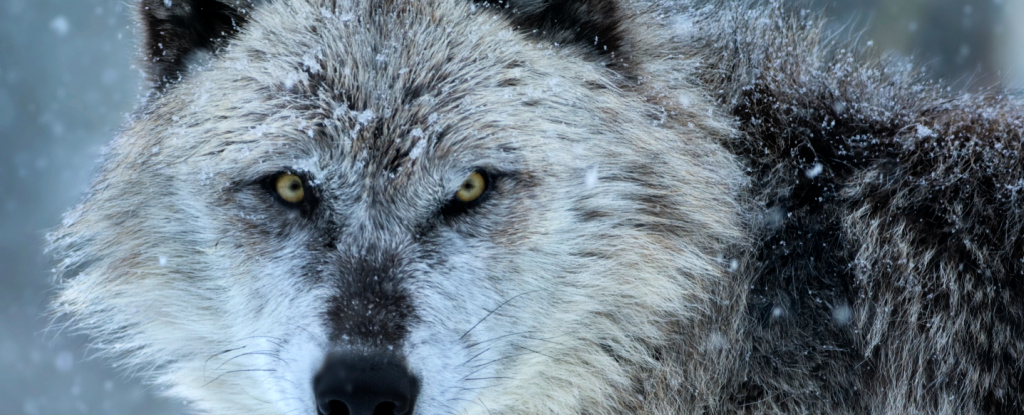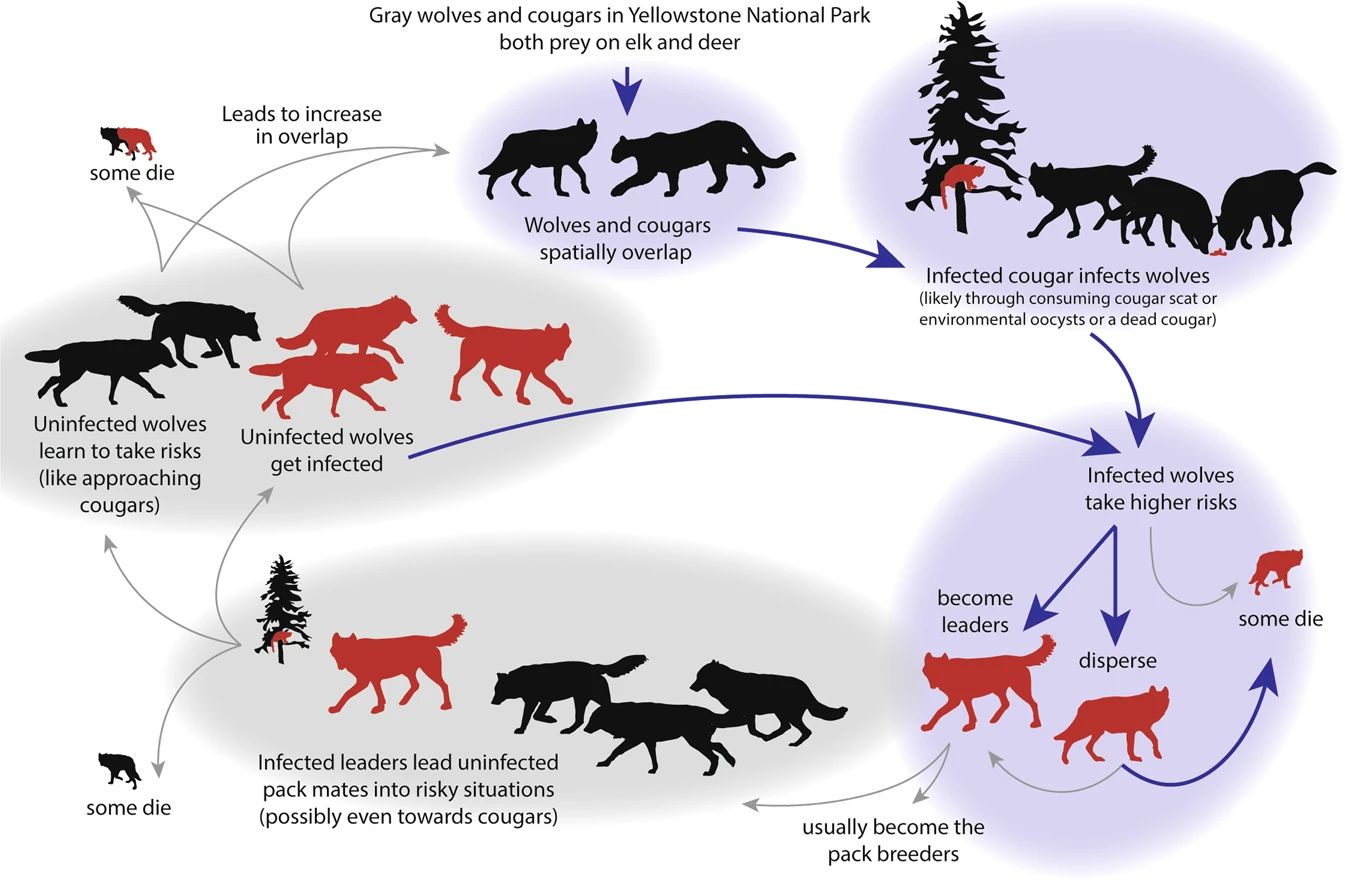Welcome to DU!
The truly grassroots left-of-center political community where regular people, not algorithms, drive the discussions and set the standards.
Join the community:
Create a free account
Support DU (and get rid of ads!):
Become a Star Member
Latest Breaking News
Editorials & Other Articles
General Discussion
The DU Lounge
All Forums
Issue Forums
Culture Forums
Alliance Forums
Region Forums
Support Forums
Help & Search
Science
Related: About this forumA Strange Thing Happens to Wolves Infected by Infamous Mind-Altering Parasite

A study of 26 years' worth of wolf behavioral data, and an analysis of the blood of 229 wolves, has shown that infection with the parasite Toxoplasma gondii makes wolves 46 times more likely to become a pack leader.
The research shows that the effects of this parasite in the wild have been horrendously understudied – and its role in ecosystems and animal behavior underestimated. If you have a cat, you've probably heard of this parasite before. The microscopic organism can only reproduce in the bodies of felines, but it can infect and thrive in pretty much all warm-blooded animals. This includes humans, where it can cause a typically symptomless (but still potentially fatal) parasitic disease called toxoplasmosis. Once it's in another host, individual T. gondii parasites needs to find a way to get their offspring back inside a cat if it doesn't want to become an evolutionary dead-end. And it has a kind of creepy way of maximizing its chances. Animals such as rats infected with the parasite start taking more risks, and in some cases actually become fatally attracted to the scent of feline urine, and thus more likely to be killed by them.
For larger animals, such as chimpanzees, it means an increased risk of a run-in with a larger cat, such as a leopard. Hyenas infected with T. gondii also are more likely to be killed by lions. Gray wolves (Canis lupus) in the Yellowstone National Park aren't exactly cat prey. But sometimes their territory overlaps with that of cougars (Puma concolor), known carriers of T. gondii, and the two species both prey on the elk (Cervus canadensis), bison (Bison bison), and mule deer (Odocoileus hemionus) that also can be found there. It's possible that wolves also become infected, perhaps from occasionally eating dead cougars, or ingesting cougar poo. Data collected on the wolves and their behavior for nearly 27 years offered a rare opportunity to study the effects of the parasite on a wild, intermediate host.
The researchers, led by biologists Connor Meyer and Kira Cassidy of the Yellowstone Wolf Project, also took a look at blood samples from wolves and cougars to gauge the rate of T. gondii infection. They found that wolves with a lot of territory overlap with cougars were more likely to be infected with T. gondii. But there was a behavioral consequence, too, with significantly increased risk-taking. Infected wolves were 11 times more likely to disperse from their pack, into new territory. Infected males had a 50 percent probability of leaving their pack within six months, compared with a more typical 21 months for the uninfected. Similarly, infected females had 25 percent chance of leaving their pack within 30 months, compared with 48 months for those who weren't infected.
Infected wolves were also way more likely to become pack leaders. T. gondii may increase testosterone levels, which could in turn lead to heightened aggression and dominance, which are traits that would help a wolf assert itself as a pack leader. This has a couple of important consequences. Pack leaders are the ones who reproduce, and T. gondii transmission can be congenital, passed from mother to offspring. But it can also affect the dynamics of the entire pack.

Read more: https://www.sciencealert.com/a-strange-thing-happens-to-wolves-infected-by-infamous-mind-altering-parasite
Wow, this sheds a whole new light on the evolutionary process.
InfoView thread info, including edit history
TrashPut this thread in your Trash Can (My DU » Trash Can)
BookmarkAdd this thread to your Bookmarks (My DU » Bookmarks)
1 replies, 1518 views
ShareGet links to this post and/or share on social media
AlertAlert this post for a rule violation
PowersThere are no powers you can use on this post
EditCannot edit other people's posts
ReplyReply to this post
EditCannot edit other people's posts
Rec (19)
ReplyReply to this post
1 replies
 = new reply since forum marked as read
Highlight:
NoneDon't highlight anything
5 newestHighlight 5 most recent replies
= new reply since forum marked as read
Highlight:
NoneDon't highlight anything
5 newestHighlight 5 most recent replies
A Strange Thing Happens to Wolves Infected by Infamous Mind-Altering Parasite (Original Post)
milestogo
Nov 2022
OP
Warpy
(113,130 posts)1. They need to study what it does to human brains
I lived with cats for most of my life, many of them strays and old barn cats who needed some rehabbing so they were fit for retirement as adored house cats. My own brain is likely chock full of toxoplasmosis.
But fuck being top wolf. Usually, the quickest way to get me to quit a job was to make me the boss. I hated it, and it happened a lot.